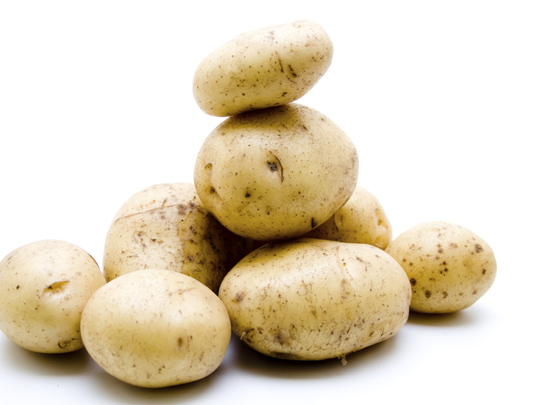
Dubai
For many people, potato fries, or chips, are a satisfying bowl of comfort food. However, what many are unaware off, is that one medium potato, is equivalent to 165 calories, and 37 grams carbohydrates when boiled, baked, or steamed and almost double the amount of calories when fried.
With French fries being a popular option at most eateries and fast food joints, people find themselves munching on potato fries, which have been included as a side dish in their meal.
Sushma Girish Ghag, Dietitian at Aster Hospital in Dubai. |
Listed as one of top five most important crops worldwide, alongside wheat, corn, rice, and sugar, potatoes are an excellent source of carbohydrates that should be eaten in moderation, Sushma Girish Ghag, Dietitian, Aster Hospital told Gulf News.
Whether mashed, boiled, or baked, potatoes are a starchy tuber, that is low in fibre and digests rapidly providing energy as well as vitamin C, potassium and zinc, Ghag explained.
For those suffering from obesity, high blood sugar, diabetes, glucose intolerance, chronic obstructive pulmonary disease and any type of cholesterol, consuming potatoes regularly, especially when fried will negatively impact their body.
“I would recommend average consumption of unfried potatoes, no more than three times a week for people who require a source of energy for sports, as well as those with low haemoglobin levels, are anaemic, or need to gain weight,” suggested Ghag.
Sara Al Mahayni, Clinical Dietitian at Valiant Clinic in Dubai. |
Sara Al Mahayni, Clinical Dietitian at Valiant Clinic in Dubai, said that potatoes are packed with different vitamins, minerals and phytochemicals that are good for the heart, and can help people suffering from blood pressure and inflammation.
Blood pressure
“Potatoes which are naturally high in potassium, help decrease blood pressure along with calcium and magnesium through their vasodilation effect. They also contain significant amount of fibre, B6, Vitamin C, and Potassium that supports heart health,” said Al Mahayni.
She said the quercetin, a flavonoid found in potato skin, contains powerful anti-inflammatory and antioxidant properties that protects our bodies from the damage of disease causing free radicals. However, quantity and portion control in consuming carbohydrates is key in keeping a well-balanced diet.
“We need to make sure we are not consuming more carbohydrates than what we need. The persistent high consumption of carbohydrates might lead to increased weight and other health and metabolic adverse effects,” said Al Mahyani.
She said baking, followed by boiling and steaming are the best potato-cooking methods.
Box:
Avoid eating potatoes if you suffer from any of the following:
- Obesity
- High blood sugar
- Diabetes
- Glucose intolerance
- Chronic obstructive pulmonary disease
- High triglyceride level or any type of cholesterol
Include boiled, baked, or mashed potatoes in your diet, no more than three times a week:
- If you require a source of energy for sports
- If you have low hemoglobin levels or are anemic
- If you need to gain weight
- If you have no appetite and need to maintain a healthy BMI level
- For heart health
- To reduce blood pressure
- To reduce inflammation
- If you find difficulty chewing solid food due to old age
- Mashed potatoes for babies as their energy requirement is high due to rapid growth and development
Source: Sushma Girish Ghag, Dietician, Aster Hospital











